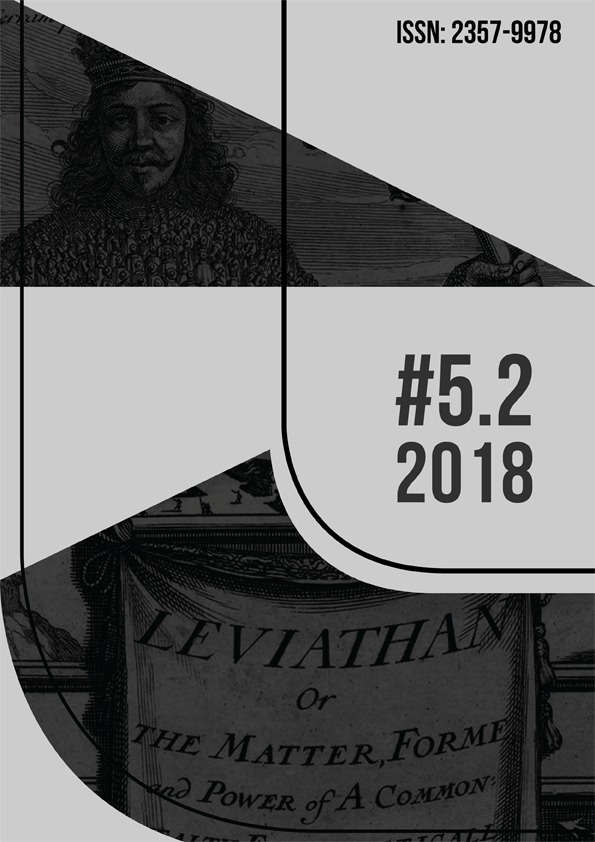To give what one does not possess through republishing: inventing new uses and enjoyments. Gift and appropriation in art in the light of the theory of property
DOI:
https://doi.org/10.36025/arj.v5i2.17850Keywords:
gift, appropriation, artists publications, contemporary art, theory of the property, pirate republishingAbstract
It is in the light of the theory of property that two types of practices recently appeared in art are analyzed here: gift and appropriation. Oppose to each other (on the one hand, to dispossess myself of my own production for the benefit of another, on the other, to give oneself what we do not possess), these two phenomena are part of the same project of art, and if so, how to articulate their coherence? Do they involve the same artists or are there, on the one hand, “appropriationists” and, on the other, those who make donations? Do these two artists' gestures have a political aim in relation to the question of property, or do they exhaust themselves in their exclusively artistic sense as strategies of creation? It is finally in certain types of pirate and generous republishing that the two movements are united in one and the same project.
Downloads
References
BEAUVAIS, Yann, BOUHOURS, Jean-Michel (dir.). Monter / Sampler. L’échantillonnage généralisé. Paris: Éditions du Centre Pompidou, 2000. (Quinzexvingt&un)
BENJAMIN, Walter. In: Œuvres. Paris: Gallimard, 2000. (Folio essais)
BROGOWSKI, Leszek . Ad Reinhardt. Peinture moderne et responsabilité esthétique. Chatou: Éditions de la Transparence, 2011. (Essais d’esthétique)
CAILLÉ, Alain. Don, intérêt et désintéressement. Bourdieu, Mauss, Platon et quelques autres. Paris: La Découverte, 2005. (Recherche / MAUSS)
CERTEAU, Michel de. L’Invention du quotidien, t. I : Arts de faire. Paris: UGE, 1980. (10 / 18)
CLAVEZ, Bertrand. Autre chose sur Fluxus : Dick Higgins et Something Else Press. In : Le Livre d’artiste : quels projets pour l’art ? Rennes: Éditions Incertain Sens, 2013, p. 154. (Grise )
DEBORD, Guy. La Société du spectacle [1967]. Paris: Gallimard, 1996. (Folio)
GALTON, Francis. Inquiries into Human Faculty and its Development. Londres: Macmillan, 1883.
HARASZTI, Miklós. Salaire aux pièces. Ouvrier dans un pays de l’Est. Paris: Éditions du Seuil, 1976. (Combats)
HÉNAFF, Marcel. Le Prix de la vérité. Le don, l’argent, la philosophie. Paris: Éditions du Seuil, 2002. (La Couleur des idées)
HUXLEY, Thomas. The Struggle for Existence in Human Society [1888]. In: BIBBY, C. (ed.). The Essence of T. H. Huxley. Londres: Macmillan, 1967.
LEFEBVRE, Henri. Critique de la vie quotidienne. Paris: Grasset, 1947.
LEVINE, Sherrie. New Photography. Genève: MAMCO, 1996.
MADJARIAN, Grégoire. L’Invention de la propriété. De la terre sacrée à la société marchande. Paris: L’Harmattan, 1991.
MALCOLM, Norman. Ludwig Wittgenstein : A Memoir [1958]. Oxford: Clarendon Press, 2001.
MARISSAL, Laurent, alias Painterman. Pinxit (III). Acà nada (il n'y a rien ici). S.l. : Éditions clandestines, n.d.
MIDDELBOS, Jan. « L’“enquête artistique” : les méthodes de représentation artistique du monde du travail en question » (2016). In : Travail des images, revue en ligne de l’université de Poitiers, dossier no 2 : « Les Ouvriers et la Photographie : de 1945 à nos jours ». Disponible sur : http://09.edel.univ-poitiers.fr/imagesdutravail/index.php?id=888 (consulté le 18 janvier 2018].
MIDDELBOS, Jan. Dossier : « Y a-t-il un artiste dans l’usine ? ». Art21, hiver 2011-2012, no 32 ; p. 15.
MOREL, Eugène. Bibliothèques. Essai sur le développement des bibliothèques publiques et de la librairie dans les deux mondes. Paris: Mercure de France, 1908.
NESTOR, Jean. Un don doit-il être gratuit ? Solidarité et philanthropie. Rennes: Presses universitaires de Rennes, 2016. (Essais)
P.-J. Proudhon, Carnets, éd. P. Haubtmann, Dijon, Les Presses du réel, coll. « L’Écart absolu / Fondamentaux », 2004, Carnet VI, p. 851.
PLOTIN. Ennéades. Paris: Les Belles Lettres, 1967.
PROUDHON, Pierre-Joseph. De la capacité des classes ouvrières [1865]. Paris: Rivière, 1924.
PROUDHON, Pierre-Joseph. Qu’est-ce que la propriété ? [1840]. Paris : LGF, 2017. (Le Livre de poche / Les Clas-siques de la philosophie)
PROUDHON, Pierre-Joseph. Théorie de la propriété. Paris et Montréal: L’Harmattan, 1997. (Les Introuvables)
WATIER, Éric. Donner c’est donner. Allotopie, n°B. Rennes: Éditions Incertain Sens, 2003.
Published
How to Cite
Issue
Section
License
Copyright (c) 2019 Leszek Brogowski (Autor)

This work is licensed under a Creative Commons Attribution-NonCommercial-ShareAlike 4.0 International License.

This work is licensed under a Attribution-NonCommercial-ShareAlike 4.0 International (CC BY-NC-SA 4.0) License.
Authors retain copyright, while licensing their work under a Attribution-NonCommercial-ShareAlike 4.0 International (CC BY-NC-SA 4.0) License.


 English
English Português (Brasil)
Português (Brasil)
